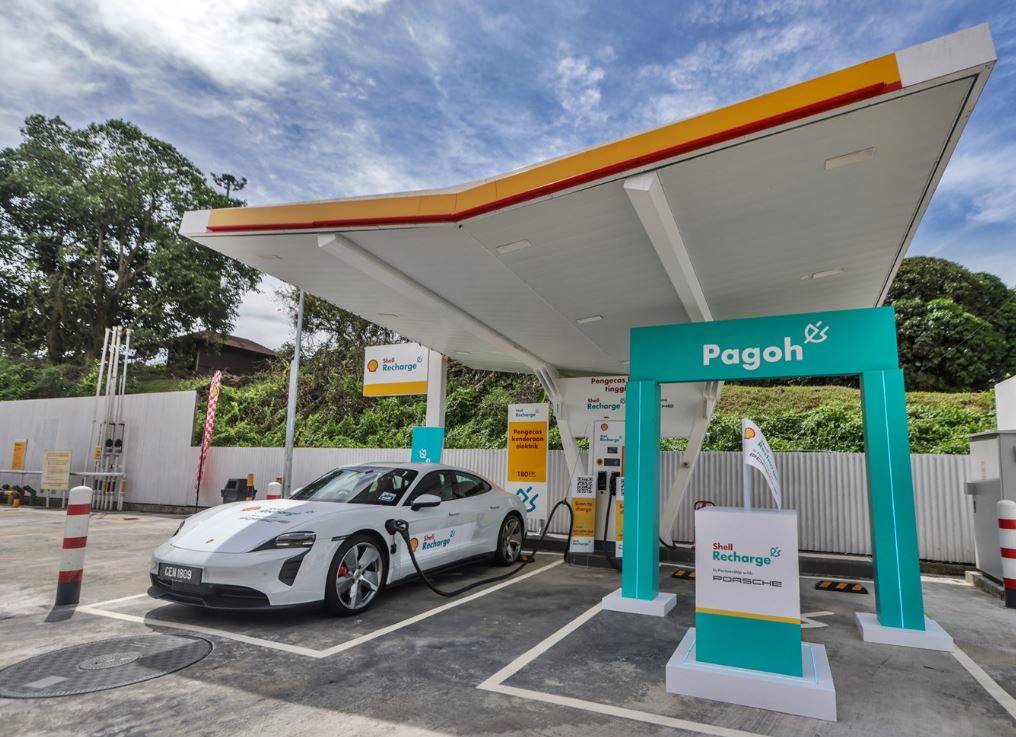A Reuters report about Shell in discussions with Saudi Aramco to sell off its petrol station network in Malaysia has obviously attracted a lot of attention. In a quick response, Shell Malaysia issued this 2-sentence statement to provide clarification of its retail fuels business.

Actual question not answered
Whoever crafted that statement should be commended for providing clarification which doesn’t really answer the question asked: are the petrol stations being sold off? Whether it is Saudi Aramco – the oil and gas company owned by Saudi Arabia – or some other party is not the most important point. In any case, such billion dollar discussions (which were said to have started last year) would not be openly confirmed until something definite is agreed and signed by the parties companies concerned.
That Malaysia is important to Shell is hardly surprising; after all, it has been here for over 130 years… since the days of the Straits Settlements. As one of the more promising developing markets over the years, Malaysia has often been used for pilot runs of new services and introduction of new products. And having been the longest petroleum brand in the country, it has established a network of stations all over the country, numbering around 950 today.


Selling off 1,000 sites in two years
The rumour to sell off its stations would tie in with the plans to sell a total of 1,000 company-owned retail sites during the next 2 years. This was announced in its Energy Transition Strategy report in March this year, though the locations were not mentioned. However, one of the markets where it has announced divesting downstream operations is South Africa.
The move with the stations is part of the company’s plan to transition to low-carbon fuels and EV charging in markets that meet the company’s investment criteria, including China, Europe and the USA (while reducing Shell’s presence in other markets).

Focussing on supplying ‘electric fuel’
The transformation of Shell’s retail business will see it focus more on another fuel for vehicles – electricity. It is making big investments in EV charging stations; for instance, in September 2023, opened its largest EV charging station globally in Shenzhen, China, which has 258 public fast-charging points on one site near the airport. By 2025, the company expects to have around 70,000 public EV charging points globally, increasing to 200,000 by the end of this decade.


Shell’s development of its EV charging station network is in preparation for the future as the number of EVs in use grows. It has already been converting some stations to EV-only stations with no liquid fuel supply. So it’s puzzling why it would want to sell off its existing stations in Malaysia (and other places) as these could also be converted or at least progressively incorporate EV stations as demand grows.

Expanding footprint in US market
Interestingly, even as it plans to reduce its retail network globally, it is expanding its presence in the US market. Earlier this year, it acquired 45 retail and fleet fuelling locations in New Mexico from Brewer Oil Company which will join its network of some 14,000 retail sites throughout the USA.

‘Mobility’ to Shell
As for the ‘mobility business’ Shell remains committed to in Malaysia, this is a very broad area as Shell is a very large company with different types of businesses. ‘Mobility’ is a term it uses to cover essentially all its activities and there is even a unit known as ‘Shell Mobility’. So if it switches to just EV stations, that would still be part of the ‘mobility’ business.
Given the huge investments that Shell has made in Malaysia, both upstream and downstream, this latest development does not mean Shell will leave the market altogether. It’s too big and its roots here are very deep. Even BP, which ceased its retail station business in 2010, is still around through the existence of some subsidiaries (including its Castrol unit) involved in the energy business.

Will it be Saudi Aramco?
Saudi Aramco is a major global supplier of petroleum products from its refineries in Saudi Arabia and other countries. It has retail business in the Kingdom but is hardly active in that area outside of the country. So to take over Shell’s Malaysian network would be something new for the company. One possibility might be that Saudi Aramco forms a joint-venture with a local company to create a new brand.

